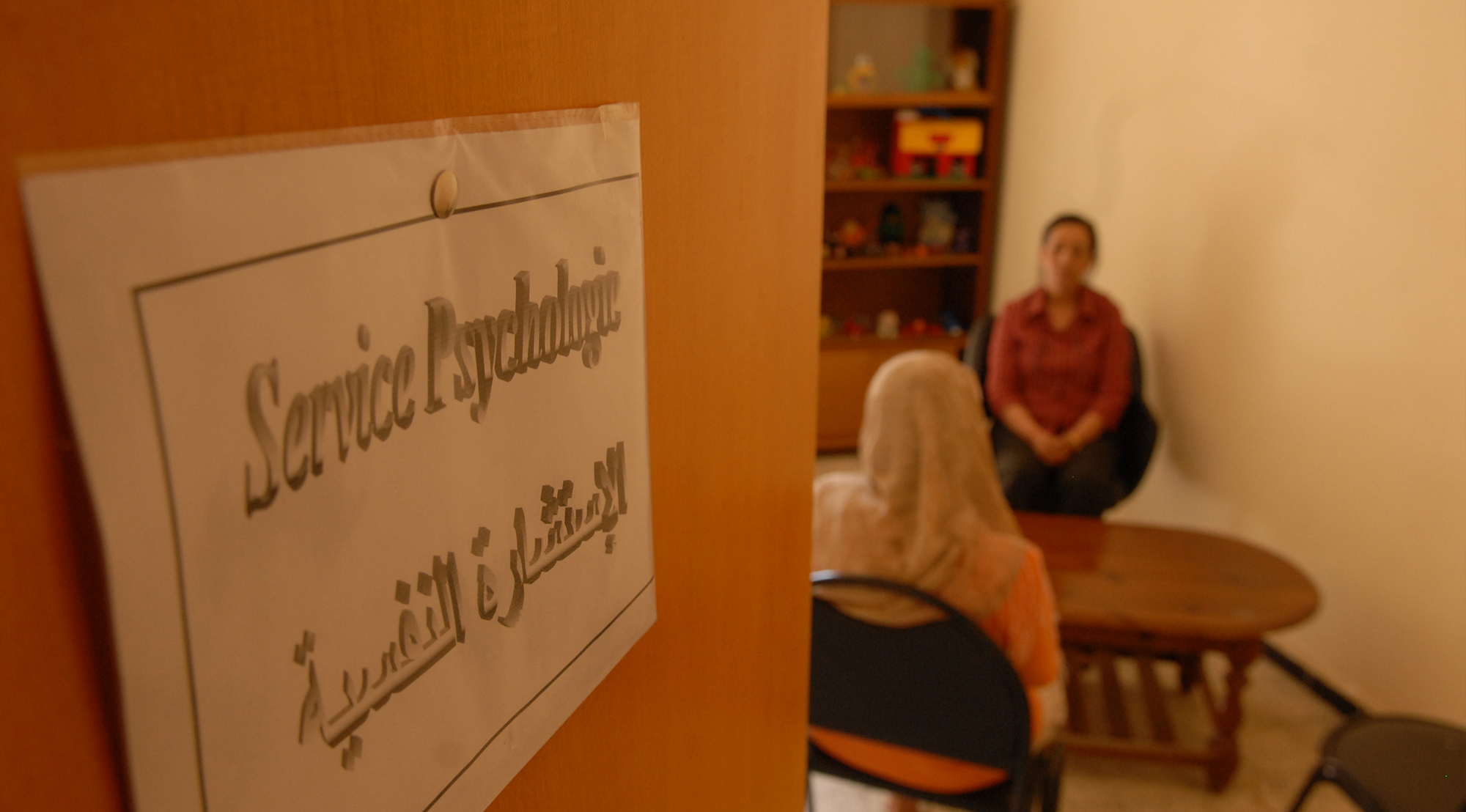In the 1990s, Algeria was beset by a bloody war between Islamists and the state. Thousands of people died and some 20,000 disappeared. The number of women raped is unknown, although it is thought to be considerable. A large proportion of the population witnessed massacres, were injured, and/or were living under constant threat of attack. In 1999, Abdelaziz Bouteflika became President. His proposed solution for dealing with the past is known as “national reconciliation”. The related laws allow for a blanket amnesty both for the state’s armed security forces and for Islamists, all of whom were guilty of violating international law and human rights. But the violence of the 1990s has left its mark on people. The structure of many families and the gender distribution of certain duties and tasks have changed. Many relationships between family members were destroyed, with communication breaking down as well.
The “Association pour l’Aide Psychologique, la Recherche et la Formation” (Association for Psychological Assistance, Research, and Education – SARP) – an umbrella organization of psychologists – conducted a study in the province of Sidi Moussa. It found that cases of post-traumatic stress disorder, depression, and anxiety are widespread. As a consequence, it built an interdisciplinary center for psychological, social, and legal support (Centre d’aide psychologique – CAP) for the victims of terrorism. cfd has been supporting the CAP and its work since 2005.
The aim of the project is to restore inner peace and social order. This is why such extensive help is being provided to victims of violence in Sidi Moussa, with all its political and social problems. The CAP offers psychological, social, and legal support to individual people and groups. The main emphasis is on the psychosocial approach. This means that consultation or therapy sessions make a connection between the psychological and social aspects of daily reality, with clients and patients trying to overcome the consequences of the trauma they have endured. It is all about people’s state of mind and what they are thinking and feeling inside in relation to their environment. Together, an attempt is made to process the individual and social dimensions of the destruction caused by violent conflict. Many people in Sidi Moussa have withdrawn from society and built a wall of silence around themselves – because they have not had a chance to process their traumatic experiences. This is why it can be helpful to work in groups. Patients can see they are not alone with their loss and sadness.
In addition, a Swiss psychologist has been working with Algerian psychologists at SARP since 2011 on the method known as “theme-centered interaction” or TCI, also acting as their supervisor. This approach is all about building independence and autonomy in relation to others: each person is an agent in their own right and must decide for themselves what is important in life and what they can change for themselves. Patients become stronger as a result of the process itself. They “experience” empowerment and are ready for reintegration into society. The method is mainly applied during group work, although it is also suitable for individual therapy.


